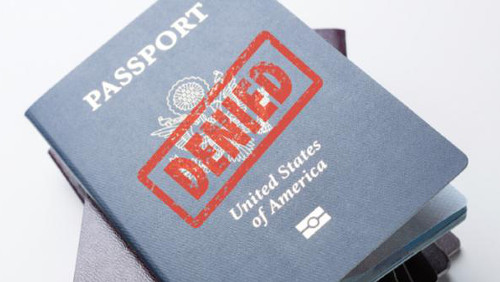
by Cory Johnson | Jun 29, 2018 | Tax Advice, IRS Collections
Having a “seriously delinquent tax deficiency” as determined under IRC §7345 can enable the IRS to certify an individual’s tax debt to the State Department, which allows the State Department to revoke, deny, or limit an individual’s passport. A taxpayer has “seriously delinquent tax debt” when he or she owes more than $51,000 including late fees and penalties (which is indexed to inflation) and when a levy has been issued or a lien has been filed by the IRS. IRC §7345(b). The right to a Collection Due Process hearing also must have lapsed or have been exhausted in order to be subject to certification.

by Cory Johnson | Sep 27, 2017 | IRS Collections
Taxpayers who don’t file their returns on time may think that the late filing/payment penalties and interest are the worst part about filing tax returns well after the deadline. But self-employed taxpayers should be aware of another harm that could haunt them in the future: losing out on Social Security retirement benefits.
By way of quick background, to be eligible for Social Security retirement benefits, a person must have wages or net self-employment earnings for 40 quarters (i.e., earn 40 “credits”).

by John Colvin | Jul 20, 2017 | Tax Audit Help, IRS Appeal, IRS Audit, Penalty Abatements & Relief, IRS Audits and Appeals, IRS Collections
In McNeill v. Commissioner, 148 T.C. No. 23 (June 19, 2017), the Tax Court held that taxpayer challenges to penalties imposed in the wake of a TEFRA partnership audit or litigation can be challenged in collection due process (CDP) proceedings. It was always clear that if a taxpayer had personal defenses to a penalty asserted at the partnership level, the taxpayer could pay the penalty (and any associated interest), file a claim for refund, and have his personal defenses considered by the IRS and the courts.
by Cory Johnson | May 18, 2017 | Employment Tax Audits, Tax Audit Help, IRS Appeal, IRS Audit, IRS Audits and Appeals, Criminal Tax Defense, IRS Collections, Trust Fund
On March 21, 2017, the Treasury Inspector General for Tax Administration (TIGTA) issued a report titled, “A More Focused Strategy Is Needed to Effectively Address Egregious Employment Tax Crimes.” The Report noted that, as of December, 2015, 1.4 million employers owed approximately $45.6 billion in unpaid employment taxes, interest, and penalties. The report indicated that in 2015, the IRS assessed the TFRP against 38% fewer responsible persons than just five years before (asserting the TFRP against just 11% of responsible individuals), and that simultaneously the number of employers with egregious employment tax noncompliance (20 or more quarters of delinquent employment taxes) has tripled in a 17-year period. TIGTA was concerned that, despite this noncompliance, there are fewer than 100 criminal convictions for employment tax violations per year.


